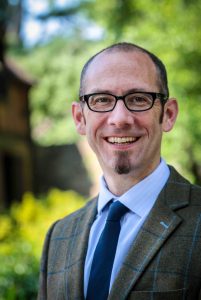2020 Workshop Talk | 57:43 | All Grade Levels, Teacher & Classroom
Summary
Letter grades, the 100% scale, and the 4.0 system of grade tracking are ubiquitous features of the North American educational system. However, they do not exist in the classical tradition and are instead late modern inventions that serve little to no pedagogical end. Instead, graded categories were specifically designed to efficiently rank students in order to distribute scarce resources like awards, scholarships, and places at the next academic level. They increase anxiety, competition, cheating, and encourage the consumerist impulse to seek the maximum grade at the minimum cost. Similarly, they decrease intrinsic motivation, wonder, courage, and the delight of learning. This workshop will provide an overview of the history of grades and introduce practices that can minimize the adverse effects grades tend to have on the academic lives of our students.
Speaker
 Dr . Brian A. Williams is dean of the Templeton Honors College and assistant professor of ethics & liberal studies. Before coming to Eastern, he was lecturer in theology and Christian ethics at the University of Oxford and director of Oxford Conversations, a collection of curated video interviews with leading Christian academics and scholars at Oxford. He holds an MPhil and DPhil in Christian ethics from the University of Oxford (UK), where he was a Clarendon Scholar; an MA and
Dr . Brian A. Williams is dean of the Templeton Honors College and assistant professor of ethics & liberal studies. Before coming to Eastern, he was lecturer in theology and Christian ethics at the University of Oxford and director of Oxford Conversations, a collection of curated video interviews with leading Christian academics and scholars at Oxford. He holds an MPhil and DPhil in Christian ethics from the University of Oxford (UK), where he was a Clarendon Scholar; an MA and
ThM in systematic and historical theology from Regent College (Vancouver, Canada); and a BA in biblical studies from Ozark Christian College (Joplin, MO). His current research examines the tradition of didascalic Christian humanism, focusing on the works of Hugh of St. Victor, Philip Melanchthon, and John Henry Newman. Dr. Williams’ broader academic interests include virtue ethics, Christian and Muslim political thought, Karl Barth’s theology and politics, classical education, and Dante Alighieri’s Commedia . He is the author of The Potter’s Rib: The History, Theology, and Practice of Mentoring for Pastoral Formation (Regent College Publishing) and co-editor of Everyday Ethics: Moral Theology and the Practices of Ordinary Life (Georgetown University Press). Dr. Williams has also taught theology, philosophy, and literature at Cair Paravel Latin School (Topeka, KS); was theologian-in-residence at First Presbyterian Church PCUSA (Topeka, KS); led Quo Vadis Travel Seminars to destinations throughout Europe; was the distance education instructor in theology for Regent College (Vancouver); and has experience in several fields of business. He is currently an Alcuin fellow and a research fellow with the Institute of Classical Education. He is married to Kim Williams and has three children: Ilia, Brecon, and Maeve.
Additional Materials
The Association of Classical & Christian Schools presents Repairing the Ruins, the ACCS annual conference, copyright ACCS. You may make additional copies of this recording for use by your school but please do not sell any copies of the recording, or post it on the internet.



